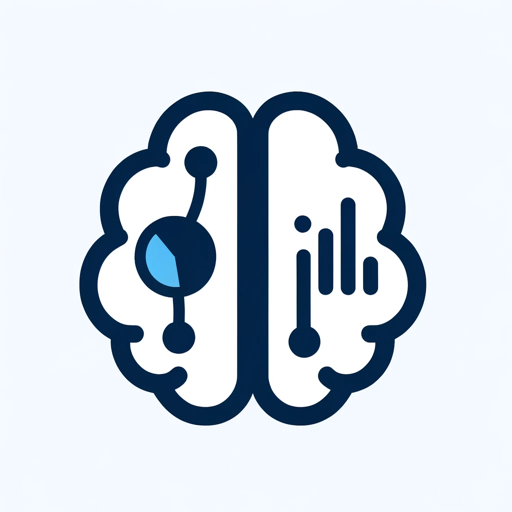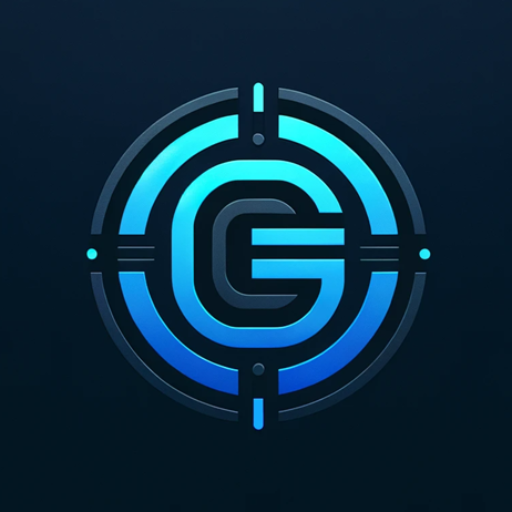GCP-AI-powered clinical trial support.
AI-driven tool for clinical trials.
What's the latest on clinical trial regulations?
Can you explain Phase 3 of a clinical trial?
What are the risks associated with clinical trials?
How do I find clinical trials for a specific condition?
Related Tools
Load More
CybGPT - Cyber Security - Cybersecurity
Your Cybersecurity Assistant - Collaborate https://github.com/Coinnect-SA/CybGPT

GPT Business Intelligence
Expert in Business Data Analysis for Strategic Insights

CloudGPT
Your Personal Cloud DevOps Mentor

GCP Assistant
Assists beginners with Google Cloud Platform, providing clear, technical guidance and resources.

GPT Store
I suggest GPTs based on your needs.

GAS & GCP Pro
Expert in writing precise code for Google Apps Script and Google Cloud.
20.0 / 5 (200 votes)
Introduction to GCP
GCP (Good Clinical Practice) is an internationally recognized ethical and scientific quality standard for designing, conducting, recording, and reporting clinical trials. It ensures that the rights, safety, and well-being of trial participants are protected, and that the data generated from clinical trials are credible and reliable. GCP guidelines are mandated by regulatory bodies such as the FDA (U.S.), EMA (Europe), and other global regulatory authorities. GCP is essential for clinical trials involving human subjects and is followed by sponsors, investigators, research centers, and ethics committees to ensure compliance with local and international regulations. For example, in a scenario where a pharmaceutical company (sponsor) wants to test a new drug, GCP guidelines will direct every step from ethical review to data collection and trial monitoring, ensuring that participants are well-informed and protected. GCP also ensures that data from the trial is handled and reported properly, enabling regulatory authorities to assess the safety and efficacy of the drug.

Key Functions of GCP
Ethical Oversight
Example
Before a trial begins, an independent Ethics Committee or Institutional Review Board (IRB) reviews the protocol to ensure that the rights of participants are protected.
Scenario
In a clinical trial testing a new cancer therapy, the Ethics Committee ensures that the informed consent process clearly explains potential risks and benefits to participants, including those with terminal illnesses. They ensure patients voluntarily agree to participate, reducing the likelihood of coercion.
Monitoring and Auditing
Example
Throughout the trial, Clinical Research Associates (CRAs) conduct site visits to ensure the research centers comply with the trial protocol and GCP standards.
Scenario
During a multi-center international trial, a CRA visits a research center in India to verify that patient data is accurately recorded and that the clinical team is following the protocol. If deviations from the protocol occur, corrective actions are taken to ensure compliance.
Data Integrity and Reporting
Example
GCP requires accurate, complete, and verifiable data collection and reporting processes, ensuring reliable trial outcomes.
Scenario
In a trial for a cardiovascular drug, data on adverse events (e.g., heart attacks) are meticulously collected and reported in line with GCP. The credibility of the trial depends on rigorous adherence to GCP to support subsequent regulatory approval.
Target Users of GCP
Pharmaceutical Companies and Sponsors
Pharmaceutical companies (sponsors) benefit from GCP by ensuring their clinical trials meet global regulatory requirements, which is essential for gaining marketing approval. Compliance with GCP minimizes the risk of trial data being rejected by regulators and enhances the credibility of their findings, supporting new drug approvals.
Clinical Research Professionals (Investigators, CRAs, etc.)
Clinical investigators, CRAs, and research teams benefit from GCP by providing a clear framework for conducting trials ethically and scientifically. GCP offers them guidelines for recruiting participants, adhering to protocols, collecting data, and reporting findings, which reduces the likelihood of regulatory issues and enhances patient safety.

How to Use GCP
Step 1
Visit aichatonline.org for a free trial without login, also no need for ChatGPT Plus.
Step 2
Familiarize yourself with GCP's interface, navigating the tools and options available, such as text generation and analysis capabilities.
Step 3
Select your desired use case, such as generating content, performing clinical trial protocol reviews, or conducting literature analysis.
Step 4
Provide clear input prompts or questions that specify your exact requirements to receive accurate and contextually relevant answers.
Step 5
Review and refine the generated content by incorporating feedback and additional queries for a deeper or more tailored response.
Try other advanced and practical GPTs
Outbound Email GPT
AI-powered cold email creation.

Gauss AI Writing
AI-powered writing coach for all.

Paragraph Writer
AI-Powered Content at Your Fingertips

Tech Troubleshoot
AI-Powered Technical Assistance Simplified

Stock Photo .CSV Scribe
AI-powered stock photo optimization

Cannabis GPT
AI-powered cannabis expertise at your fingertips
Avatar Maker
Create unique avatars using AI

GPT Shield
AI-powered Security for Your Bot

GPTech
AI-powered tools, customized by you.

Writing Companion
AI-powered writing companion for all needs.

Image editor
AI-powered image editing made easy

Database Design
AI-powered database design made easy

- Content Creation
- Document Review
- Regulatory Compliance
- Clinical Research
- Protocol Design
Top 5 Questions about GCP
What does GCP specialize in?
GCP is designed for assisting professionals and students with clinical trial protocols, regulatory guidelines, and GCP compliance, while also handling general content creation and research tasks.
Can GCP assist with clinical trial documentation?
Yes, GCP can help review clinical trial protocols, ensure GCP compliance, and provide guidance on documentation such as informed consent forms, regulatory filings, and site management.
Is GCP useful for non-clinical applications?
Absolutely. GCP can also be used for general tasks such as academic writing, research assistance, data analysis, and generating informative content across various fields.
Do I need any prior knowledge to use GCP?
No specialized knowledge is required. GCP is designed to be intuitive for a broad range of users, from experts to beginners.
Can I use GCP for regulatory submission preparation?
Yes, GCP can assist with the preparation of regulatory documents, ensuring they align with GCP standards and other regulatory requirements.